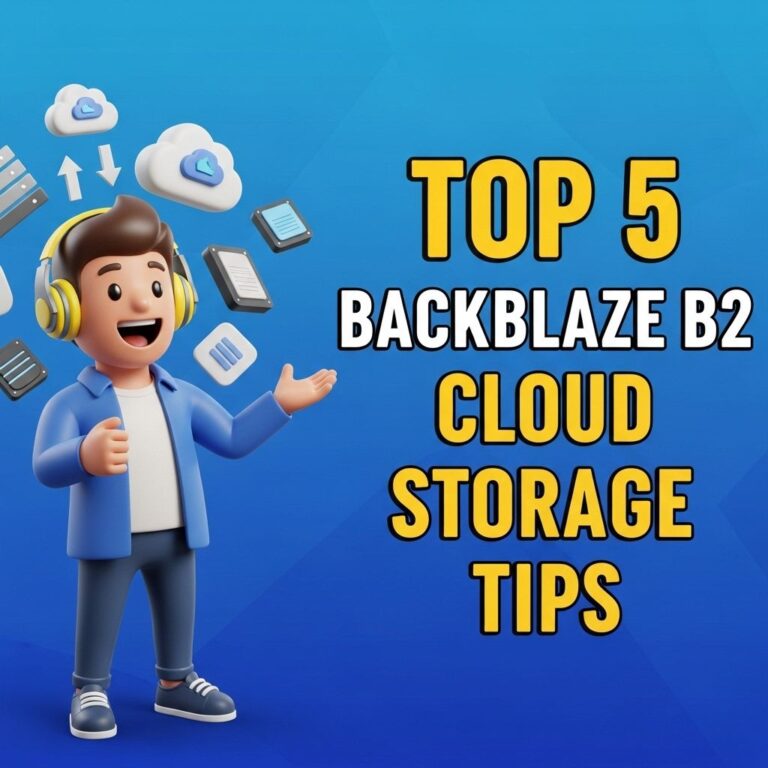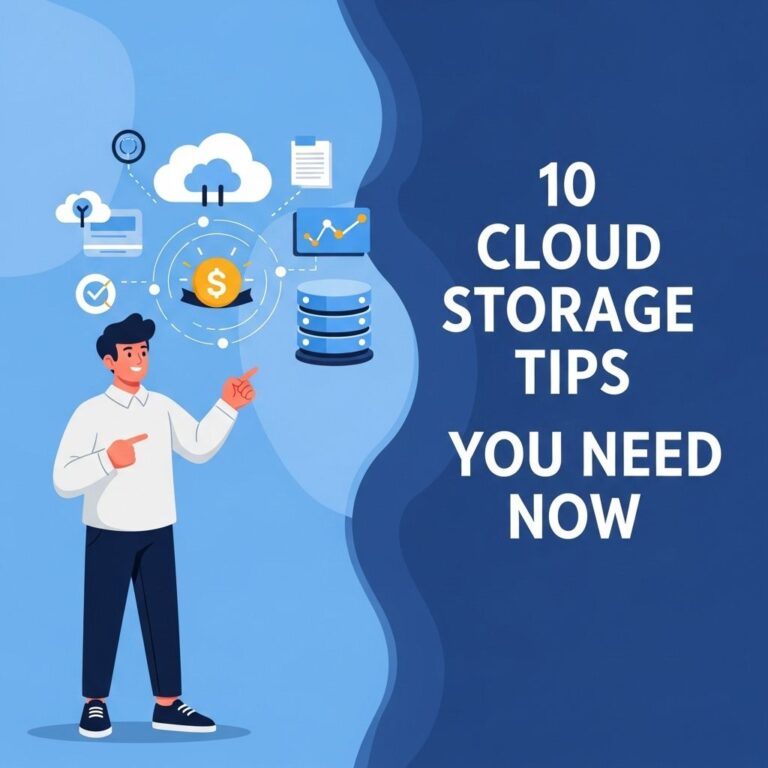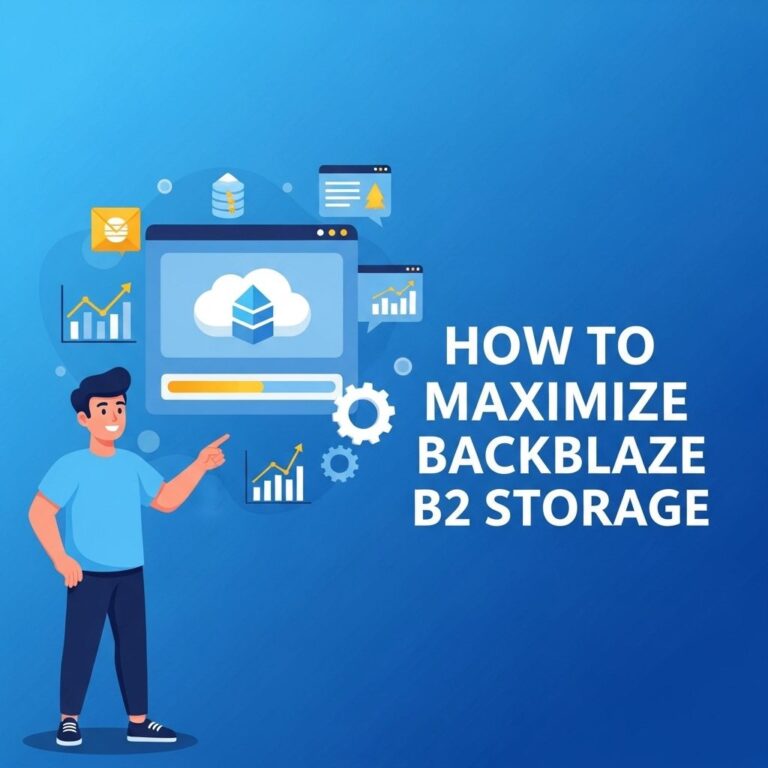Table of Contents
Best Cloud Storage Solutions for Enterprises in 2025
As we progress through 2025, the digital landscape continues to evolve, leading organizations to prioritize efficient data management and storage solutions. Cloud storage has emerged as a vital resource for enterprises, providing scalability, accessibility, and security. This article explores the best cloud storage solutions for enterprises in 2025, considering various factors such as cost, performance, security, and user experience.
As enterprises increasingly rely on digital solutions, identifying the top cloud storage options for 2025 is crucial for effective data management. These platforms not only enhance collaboration but also ensure robust security and scalability tailored to evolving business needs. For those in search of creative resources, creative menu templates can complement digital strategy by providing visually appealing layouts.
Understanding Cloud Storage
Cloud storage refers to the practice of storing data on remote servers accessed via the internet. Unlike traditional on-premises storage systems, cloud storage allows businesses to store, manage, and access data from anywhere in the world without the need for physical hardware. This flexibility is one of the main reasons enterprises are increasingly migrating to cloud solutions.
Factors to Consider When Choosing Cloud Storage
When selecting a cloud storage solution, enterprises should consider the following factors:
- Scalability: The ability to easily scale storage capacity based on the organization’s evolving needs.
- Security: Robust security features to protect sensitive data, including encryption, access controls, and compliance with regulations.
- Integration: Compatibility with existing tools and workflows to ensure seamless operations.
- Cost: Pricing structures that align with the organization’s budget and usage patterns.
- Performance: Fast data access speeds and reliable uptime.
Top Cloud Storage Solutions for Enterprises in 2025
1. Amazon Web Services (AWS) S3
Amazon Web Services (AWS) remains a leader in cloud storage with its Simple Storage Service (S3). In 2025, AWS S3 is known for its:
- Flexible Pricing: Pay-as-you-go pricing model that allows enterprises to only pay for the storage they use.
- Scalability: Seamlessly scales to store virtually unlimited amounts of data.
- Security Features: Advanced security measures including data encryption, identity access management, and compliance with industry standards.
2. Microsoft Azure Blob Storage
Microsoft Azure Blob Storage is another robust option for enterprises. Key features include:
- Integration: Seamlessly integrates with Microsoft Office 365 and other Azure services.
- High Availability: 99.99% uptime SLA, ensuring that data is accessible when needed.
- Cost-Effective: Competitive pricing with tiered storage options to suit various usage patterns.
3. Google Cloud Storage
Google Cloud Storage offers reliable solutions for enterprises looking for efficient storage options. Highlights include:
- Global Edge Caching: Reduces latency and improves access speed for users worldwide.
- Data Lifecycle Management: Automated features to manage data across different storage classes based on usage.
- AI and Machine Learning Integration: Enhanced capabilities for analyzing and processing data using Google’s AI tools.
4. IBM Cloud Object Storage
IBM Cloud Object Storage is a powerful solution focused on data and analytics. Its notable features include:
- Data Resiliency: Designed for high durability and availability.
- Built-in AI Integration: Works seamlessly with IBM’s AI and analytics tools for enterprise insights.
- Secure Data Access: Strong security and compliance features tailored for sensitive data handling.
5. Box
Box is an enterprise-focused cloud storage solution popular for its collaboration features. Key aspects include:
- Collaboration Tools: Integrated tools for document sharing, real-time collaboration, and workflow management.
- Enterprise Security: Advanced security features including data loss prevention, encryption, and compliance management.
- User-Friendly Interface: Intuitive design that makes it easy for teams to work together.
Comparative Table of Cloud Storage Solutions
| Cloud Storage Provider | Scalability | Security | Pricing | Key Features |
|---|---|---|---|---|
| AWS S3 | Unlimited | Advanced | Pay-as-you-go | Flexible, Fast Access |
| Microsoft Azure Blob Storage | High | Advanced | Competitive | Integration with MS Services |
| Google Cloud Storage | Global | Strong | Tiered Options | Global Caching, AI Integration |
| IBM Cloud Object Storage | High | Robust | Customizable | AI & Analytics Features |
| Box | High | Enterprise Grade | Subscription-Based | User-Friendly, Collaboration Tools |
Emerging Trends in Cloud Storage for Enterprises
As cloud storage technology advances, several trends are shaping the future of enterprise solutions:
- Increased Focus on Security: With rising cyber threats, enterprises are prioritizing security in their cloud storage solutions.
- Hybrid Cloud Solutions: Many organizations are adopting hybrid cloud strategies that combine on-premises infrastructure with cloud storage for enhanced flexibility.
- Artificial Intelligence: AI is increasingly integrated into cloud storage solutions, offering smarter data management and analysis capabilities.
Conclusion
In conclusion, choosing the right cloud storage solution is crucial for enterprises in 2025. As organizations continue to navigate the complexities of data management and storage, it’s essential to consider factors such as scalability, security, and integration. The options listed above—AWS S3, Microsoft Azure Blob Storage, Google Cloud Storage, IBM Cloud Object Storage, and Box—represent some of the best solutions available in the industry today. By understanding their unique features and capabilities, enterprises can make informed decisions that align with their business goals and challenges.
FAQ
What are the top cloud storage solutions for enterprises in 2025?
In 2025, some of the top cloud storage solutions for enterprises include Google Cloud Storage, Microsoft Azure, Amazon S3, IBM Cloud Object Storage, and Dropbox Business, each offering robust features tailored for enterprise needs.
How can enterprises ensure data security in cloud storage?
Enterprises can ensure data security in cloud storage by implementing encryption, using multi-factor authentication, conducting regular security audits, and choosing providers with strong compliance certifications.
What factors should enterprises consider when choosing a cloud storage solution?
Enterprises should consider factors such as scalability, cost, data security, compliance with regulations, ease of integration, and customer support when choosing a cloud storage solution.
Are there cloud storage solutions specifically designed for regulatory compliance?
Yes, many cloud storage solutions, such as Microsoft Azure and Google Cloud, offer features specifically designed to meet regulatory compliance standards like GDPR, HIPAA, and PCI-DSS.
How do cloud storage solutions support collaboration among teams?
Cloud storage solutions support collaboration by allowing multiple users to access, edit, and share files in real-time, facilitating seamless communication and teamwork across different locations.








